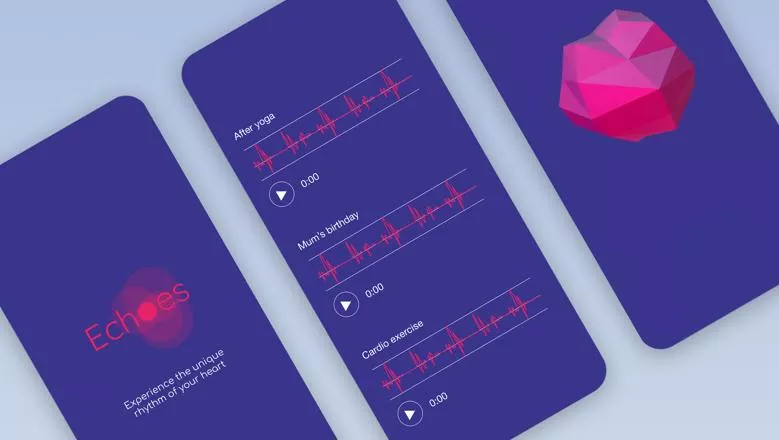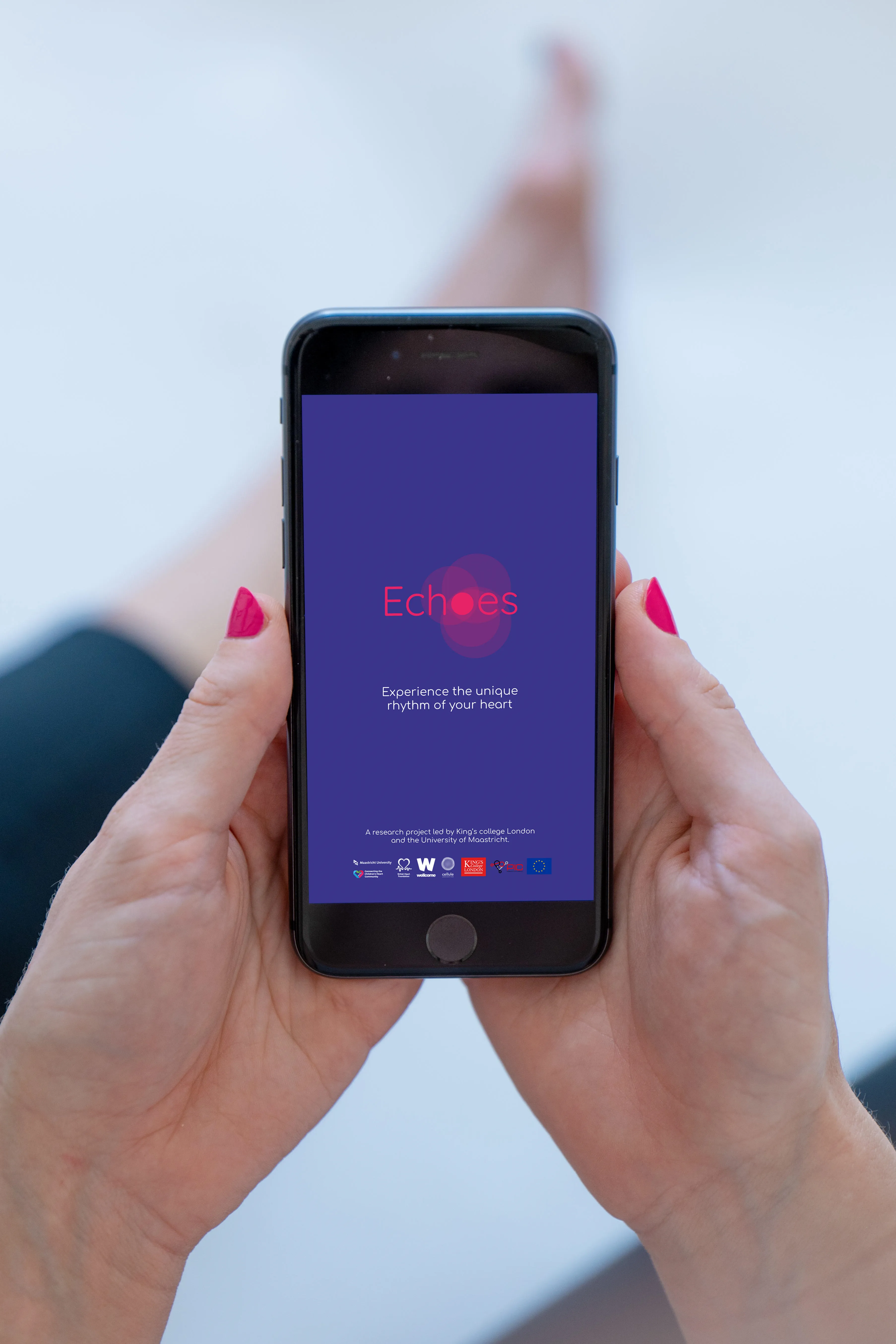The vision for Echoes is that this app can increase the awareness of the general public about how the heart works and that in the long run we could routinely monitor the heart from home instead of having to rely solely on hospital visits.
Professor Pablo Lamata, School of Biomedical Engineering & Imaging Sciences
21 May 2021
Researchers develop mobile app to record the sound of a beating heart
If the research shows that mobile technologies are a viable way of recording heart sounds, in the future, cardiac patients and doctors could use at-home recordings to check for sudden or significant changes

Researchers from King’s College London’s School of Biomedical Engineering & Imaging Sciences, Maastricht University and designers from Cellule design studio with testing support from the British Heart Foundation (BHF) and Evelina Children’s Heart Organisation (ECHO), have created a one-of-a kind app, Echoes, which records the beating of a user's heart with use of their mobile phone.
Once someone using the app has saved a recording of their heart, it is added to a database which the King’s and Maastricht teams then analyse for sound quality along with anonymised anthropometrics and cardiac health indicators, provided by the user. The database of recordings can then be analysed in order to see how well the technology performs.
All the recordings are anonymised, with only relevant data such as whether the user has been diagnosed with any heart conditions attached.
Heart researcher at the School of Biomedical Engineering & Imaging Sciences, Professor Pablo Lamata said the interest in the app originated from his work which seeks to improve the management of aortic stenosis, narrowing of the outlet valve of the left ventricle.
If the research shows that mobile technologies are a viable way of recording heart sounds, in the future, cardiac patients and doctors could use at-home recordings to check for sudden or significant changes.
Users with no pre-diagnosed cardiac condition can still benefit from hearing their heart sounds, for instance as a meditative tool, or to compare their heartbeat before and immediately after exercise.
PhD student at Maastricht University Honxing Luo said due to the widespread use of mobile phones, technologies and applications can reach a wider range of general population, which would be a possible way of improving the general public’s awareness of heart disease.

Echoes uses heart sound to improve patient's treatment response. With such apps, we foresee a much wider coverage of the public, regardless of their ethnicity, nationality, skin color, height or weight. The beauty of the Internet lies in its equality to promote knowledge to anyone who wants it and our app surely shows this.
Honxing Luo, PhD Student, Maastricht University
We are keen to explore how digital tools such as Echoes make knowledge accessible for as many heart families as possible. By using the app we hope that parents, carers and children can learn about their heart, have fun exploring with recording the sounds of their heart and feel connected to those they choose to share them with.
Samantha Johnson, CEO at Evelina Children’s Heart Organisation (ECHO)
The initial idea for using smartphones to record heart sounds came from Mr Luo, working with research leader Frits Prinzen, who began developing the algorithm which grew into the app through his work on the EU-funded PIC project.
Professor Pablo Lamata who coordinates PIC, approached design studio Cellule to build on this and create Echoes.
Echoes was developed by a team of researchers working across King’s College London and Maastricht University, along with the team at Cellule design studio, with input and testing from the BHF and ECHO charities and funding from Wellcome and from the European Union through the Marie Skłodowska-Curie Actions PIC project.

